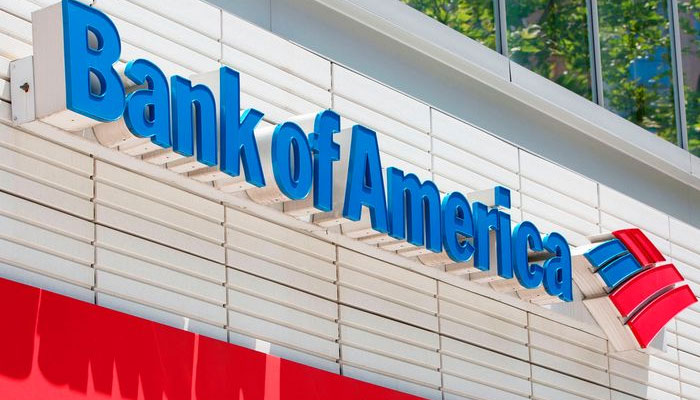PM’s roadmap
Bank of America now believes that it is a good time to invest in bonds issued by Pakistan
The Bank of America Corporation, the second-largest banking institution in the United States, has raised its recommendation for Pakistan dollar bonds to overweight from market-weight, citing falling political uncertainty after the elections.
What does this signify? Essentially, this means Bank of America now believes that it is a good time to invest in bonds issued by Pakistan. Bank of America is also suggesting people allocate a larger portion of investment portfolios to Pakistani bonds compared to other options.
Question: What has prompted Bank of America to make the recommendation it is making? Answer: Bank of America believes that the recent Pakistani elections made the political situation less chaotic, which is good for the economy and makes Pakistani bonds less risky.
Question: What might occur next? Answer: Agencies that rate the risk of bonds might increase Pakistan's rating. A heightened rating would signify greater confidence in Pakistan's ability to repay its loans, subsequently bolstering investor trust.
Bank of America’s endnote states: “We note remaining political tail risks as the market may closely monitor Cabinet appointments, evaluating key members on their ability to deliver on IMF conditions.”
Question: What is Bank of America saying? Answer: Investors are watching who will be in important government positions, like the minister of finance. Yes, politics still matter; political appointments in Pakistan can still affect the economy and make investors nervous. Yes, skills are key. Investors want to see if the new appointments have the experience and skills to make tough decisions and stick to their promises.
Not to forget, Pakistan still has to work with the IMF to finance its external financing requirement of $24.965 billion. The IMF will have tough conditionalities, and investors want to make sure the new government is serious about following them.
Question: What’s the bottom line? Answer: It’s not a done deal yet. Investors are happier with Pakistan, but before they're fully convinced, they want to see who's in charge and if the new team can keep the economy on track.
Yes, Bank of America's endorsement signals positive prospects for Pakistan's economy. Yes, the true litmus test lies in the meticulous selection of key government positions, notably the minister of finance. Remember, investors anxiously await the unveiling of the new team. Remember, investors will be assessing the new team's strategic acumen and ability to navigate the intricate web of IMF conditionalities.
The prime minister must keep in mind that investors will be carefully evaluating the incoming team members for three pivotal attributes: competence, resilience in the face of challenges, and unwavering dedication to their roles and responsibilities.
The prime minister would have to do four other things: prioritize transparency in decision-making; foster a conducive environment for foreign investment; demonstrate a commitment to fiscal responsibility; and demonstrate a commitment to fiscal responsibility.
The prime minister would have to prioritize transparency in decision-making. The prime minister would have to foster a conducive environment for foreign investment. The prime minister would have to demonstrate a commitment to fiscal responsibility. And, the prime minister would have to ensure efficient use of public resources.
The writer is a columnist based in Islamabad. He tweets/posts @saleemfarrukh and can be reached at: farrukh15@hotmail.com
-
 Extreme Cold Warning Issued As Blizzard Hits Southern Ontario Including Toronto
Extreme Cold Warning Issued As Blizzard Hits Southern Ontario Including Toronto -
 Lana Del Rey Announces New Single Co-written With Husband Jeremy Dufrene
Lana Del Rey Announces New Single Co-written With Husband Jeremy Dufrene -
 Ukraine-Russia Talks Heat Up As Zelenskyy Warns Of US Pressure Before Elections
Ukraine-Russia Talks Heat Up As Zelenskyy Warns Of US Pressure Before Elections -
 Lil Nas X Spotted Buying Used Refrigerator After Backlash Over Nude Public Meltdown
Lil Nas X Spotted Buying Used Refrigerator After Backlash Over Nude Public Meltdown -
 Caleb McLaughlin Shares His Resume For This Major Role
Caleb McLaughlin Shares His Resume For This Major Role -
 King Charles Carries With ‘dignity’ As Andrew Lets Down
King Charles Carries With ‘dignity’ As Andrew Lets Down -
 Brooklyn Beckham Covers Up More Tattoos Linked To His Family Amid Rift
Brooklyn Beckham Covers Up More Tattoos Linked To His Family Amid Rift -
 Shamed Andrew Agreed To ‘go Quietly’ If King Protects Daughters
Shamed Andrew Agreed To ‘go Quietly’ If King Protects Daughters -
 Candace Cameron Bure Says She’s Supporting Lori Loughlin After Separation From Mossimo Giannulli
Candace Cameron Bure Says She’s Supporting Lori Loughlin After Separation From Mossimo Giannulli -
 Princess Beatrice, Eugenie Are ‘not Innocent’ In Epstein Drama
Princess Beatrice, Eugenie Are ‘not Innocent’ In Epstein Drama -
 Reese Witherspoon Goes 'boss' Mode On 'Legally Blonde' Prequel
Reese Witherspoon Goes 'boss' Mode On 'Legally Blonde' Prequel -
 Chris Hemsworth And Elsa Pataky Open Up About Raising Their Three Children In Australia
Chris Hemsworth And Elsa Pataky Open Up About Raising Their Three Children In Australia -
 Record Set Straight On King Charles’ Reason For Financially Supporting Andrew And Not Harry
Record Set Straight On King Charles’ Reason For Financially Supporting Andrew And Not Harry -
 Michael Douglas Breaks Silence On Jack Nicholson's Constant Teasing
Michael Douglas Breaks Silence On Jack Nicholson's Constant Teasing -
 How Prince Edward Was ‘bullied’ By Brother Andrew Mountbatten Windsor
How Prince Edward Was ‘bullied’ By Brother Andrew Mountbatten Windsor -
 'Kryptonite' Singer Brad Arnold Loses Battle With Cancer
'Kryptonite' Singer Brad Arnold Loses Battle With Cancer




